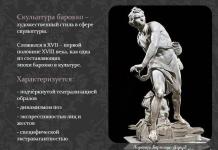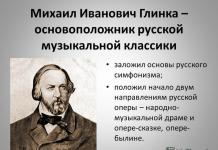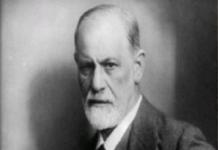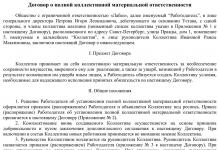Introduction.
This exciting message is written to teach and encourage, to rebuke and to awaken, it speaks of practical holiness and calls Christians to active faith. This is a deeply ethical, life-saving message.
The Catholic Epistle of James, like the epistles of Peter, John and Jude, is addressed not to any specific church or individual, but to all believers in general. It complements Paul's teaching as he laid it out in his letters. The main theme of Paul's letters is faith, James emphasizes Christian behavior, Peter emphasizes hope, John emphasizes love, Jude emphasizes purity.
Author.
The New Testament tells us about four followers of Christ who lived in His time, who bore the name James: 1) son of Zebedee and brother of John (Mark 1:19), 2) son of Alphaeus (Mark 3:18), 3) father of Judas (not Iscariot; Luke 6:16), 4) brother of the Lord (Gal. 1:19). The book known as the Epistle of James appears to have been written by one of them.
James, the son of Zebedee, could not have been its author, since he was killed before the epistle was written (Acts 12:2). It is unlikely that the little-known Jacob, son of Alpheus, could have written it. James, the father of Judas, was also not particularly famous among the early Christians. It is therefore difficult to assume that the message was written by him.
It remains, therefore, to assume that the letter was written by James, the brother of Jesus, who became a prominent leader of the Jerusalem church. This conclusion is confirmed by the confident didactic tone of the epistle, as well as the characteristic use of the Greek language inherent both in this epistle and in James's speech at the Council of Jerusalem, as recorded in Acts. 15.
Although James grew up in the same family with Jesus, he apparently did not believe in Him until after His resurrection from the dead - judging by the words of the evangelist John: “For His brothers did not believe in Him” (John 7:5) .
The meeting with the risen Christ instilled saving faith in Jacob, and Paul writes about this: “then he appeared to James, and also to all the apostles” (1 Cor. 15:7). The Apostle Paul, in addition, noted the fact that James, Peter and John were considered “pillars of the church” (Gal. 2:9).
So, most likely this message was written by James, the brother of Jesus in the flesh. And such prominent early Christian figures as Origen, Cyril of Jerusalem, Athanasius, Augustine and many others adhered to precisely this point of view.
The historian Josephus, who lived in the first century after Christ, writes that James was killed in 62. Thus, the message must have been written earlier. And taking into account the fact that James does not say anything in his epistle about the Jerusalem Council of 49, at which he played such an active role, it can be assumed that the epistle was written before this council, that is, somewhere between 45 and 48 .
It is likely that this letter was the very first book of the New Testament and therefore cannot be considered as polemical in relation to the letter of the Apostle Paul to the Romans, which was written later. In turn, Paul does not contradict James. This is evident from Paul's treatment of James (Acts 15:13; 21:18); he respected him and recognized his authority (Gal. 1:19; 2:9,12). These two apostles seem to complement each other and together define faith in its entirety.
Paul writes about the internal manifestation of saving faith as God sees it, and James writes about the external manifestation of effective faith as it appears to man. The truth of saving faith is verified by the visible fruits of effective faith. James emphasizes the fact that biblical faith is just that: effective faith.
To whom is it addressed?
James writes that his letter is addressed to “the twelve tribes that were scattered abroad” (James 1:1). The flavor of Judaism is clearly inherent in it. In its authoritative tone the message is similar to the prophetic books, and in its style and beauty it is similar to the book of Psalms. James speaks of “the firstfruits of creation” (1:18, cf. Lev. 23:10), of the assembly of saints (2:2), of Father Abraham (2:21), of Gehenna or hell (3:6), of the Lord Hosts (5:4, compare Gen. 17:1), about the early and late rain or autumn and spring (5:7, compare Deut. 11:14).
Despite the fact that some theologians believe that the expression “to the twelve tribes scattered abroad” should be understood in a figurative sense, i.e. as "a pagan church scattered throughout the Roman Empire", it seems that it is more correct to understand these words literally. The message is truly addressed to a Jewish audience. Although it is written in immaculate Greek, there is a palpable presence of purely Jewish symbolism.
Apparently, the Apostle Peter wrote to Jewish Christians living in the West (1 Pet. 1:1), and James - to Jewish Christians living in the East, in Babylon and Mesopotamia.
It is interesting to note that in some of the early collections of the Holy Books that have come down to our time, the epistle of James is not present. However, the earliest of these collections, which is known as the “Muratorial” and dates back to the second century AD, does not include not only the Epistle of James, but also the Epistle to the Hebrews, as well as the Epistles of Peter. The Epistle of James began to be permanently included in the canon of Holy Books only from the 4th century.
It seems that while the churches of Rome and Carthage doubted for a long time whether this Epistle could be considered canonical, in the churches of Jerusalem and Alexandria they resorted to it from an early date, and in Asia Minor it was included in the collection of biblical books. The reason for this is quite clear. Believers in the West could not so quickly and easily recognize a message written in Jerusalem and addressed to Jews living in the countries of the eastern dispersion. However, God Himself made sure that this message was not only written, but also that it was accepted and recognized as inspired.
The epistle of James is both a letter and a lecture. It begins with the usual greeting for a letter, but it does not contain the personal address inherent in a letter, nor does it contain the final blessing, also characteristic of Christian churches. Apparently, it was not intended as a message, but as a public sermon to be read in churches. It is expressed in a clearly authoritative, although not dictatorial, tone. The 108 verses of the text contain 54 commands, i.e., on average there is a call to action every second verse!
The speaking style is energetic and lively, with deep thoughts conveyed in clear, well-thought-out words. The sentences are simple, clear and short. The message contains many metaphors and poetic comparisons. It probably contains more figures of speech, analogies, and comparisons taken from natural life than all of Paul's letters combined (see table). This short book devotes a lot of space to exhortations, rhetorical questions, and examples from everyday life.
Jacob achieves a striking literary effect by connecting sentences and their individual parts together by repeating the main meaning of the word or using another word that is identical to it. For example: the phrase ends in the third verse and the apostle begins the fourth verse of the same chapter with the words: “without any lack,” and in verse 3: “if anyone lacks”; in verse 5: “let him ask,” and in verse 6: “but let him ask in faith”; in verse 6: “doubting not the least,” and in the second half of the same verse: “because he who doubts”
In addition to his unusual, innovative Style, James makes many references to the Old Testament scriptures. He has direct references to Abraham, Rahab, Job, Elijah and the Ten Commandments, and in addition, allusions from the books of the Old Testament, ranging from (Genesis to Deuteronomy, Joshua, 1 Kings, Psalms, Proverbs, Ecclesiastes, Isaiah, Jeremiah, Ezekiel, Daniel and seven of the 12 minor prophets.
The teaching of James bears traces of the direct influence of John the Baptist (compare James 1:22,27 with Matt. 3:8; James 2:15-16 with Luke 3:11; James 5:1-6 with Matt. 3 :10-12). It is quite possible that James, like Peter, John and Andrew, himself listened to the sermons of John the Baptist in his time. An amazing parallelism can also be seen between the letter of James and Christ's Sermon on the Mount, recorded in Matthew 5-7. James does not repeat the words of Christ, but analyzes them and conveys to his listeners the teaching of Christ in all its depth.
Thanks to the expressiveness, brevity and strict simplicity inherent in his language, Jacob created a truly literary masterpiece. This is a very figurative and at the same time passionate message. The rhythmic beauty of the Greek language is combined with the strength and semantic richness characteristic of Hebrew. The message is beautiful in form and deeply impressive in its content.
The purpose of this outstanding message was to call the early believers to achieve spiritual growth and demonstrate holiness in their lives. The message touches on the practical side of Christian life, and to a lesser extent on Christian teaching. James explains to his readers how they can practically achieve spiritual maturity through personal endurance and selfless service by being self-controlled, humble, and sacrificial. James touches on all aspects of Christian life: what a Christian should be, how he should act, speak and feel, what to strive for.
In his somewhat strict teaching on practical holiness, James shows how Christian faith and Christian love should be manifested in various life situations. Seemingly sudden transitions from one topic to another can be easily understood and explained in light of this overall theme. The pearls of individual thoughts here are not scattered in disorder, but are collected into a beautiful priceless necklace.
Images of nature in the Epistle of James:
1:6 "sea wave"
1:6 "wind"
1:10 "color on the grass"
1:11 "the sun rises, the heat comes"
1:11 “the heat withers the grass”
1:17 "heavenly light"
1:17 "shadow of change"
1:18 "the firstfruits of His creatures"
3:3 "we put the bits in the horses' mouths"
3:4 "ships...are tossed about by strong winds"
3:5 "a small fire ignites a lot of substance"
3:6 "fire"
3:7 "beasts and birds, reptiles and sea creatures"
3:8 "deadly poison"
3:11 "sweet and bitter water"
3:12 “A fig tree cannot bear olives, or a vine fig tree.”
3:18 "And the fruit of righteousness in peace is sown to those who keep peace"
4:14 "you...vapor appearing for a little time"
5:2 "Your garments are moth-eaten"
5:3 "Your gold and silver are rusty"
5:4 "the workers who reaped the fields"
5:4 "the cry of the reapers"
5:5 "Your hearts were nourished as for the day of slaughter"
5:7 "The farmer waits for the precious fruit"
5:7 “he endures a long time until he receives the former and the latter rain”
5:14 "anointing him with oil"
5:17 "I prayed that it would not rain"
5:17 "and there was no rain on the land"
5:18 "the sky gave rain"
5:18 "the earth brought forth its fruit"
Book outline:
I. Perseverance in Faith (Chapter 1)
A. Greeting (1:1)
B. Rejoice in enduring temptation (1:2-12)
1. Attitude towards temptations (1:2)
2. Benefit from temptation (1:3-4)
3. Help in temptations (1:5-12)
C. Fighting Temptations (1:13-18)
1. Source of temptations (1:13-14)
2. Stages of temptation (1:15-16)
3. Victory over temptations (1:17-18)
D. Blessed is he who fulfills the Word of God. (1:19-27)
1. Receiving the Word of God (1:19-21)
2. Attitude to the Word of God (1:22-25)
3. Submission to the Word of God (1:26-27)
II. Serve with Compassion and Empathy (Chapter 2)
A. Accept your neighbors (2:1-13)
1. Be polite and courteous to everyone 2:1-4)
2. Be compassionate towards everyone (2:5-9)
3. Be consistent in everything (2:10-13)
B. Helping others (2:14-26)
1. Demonstrating true faith (2:14-17)
2. Evidence of the truth of faith (2:18-20)
3. Examples of true faith (2:21-26)
III. On “taming” the tongue (Chapter 3)
A. Speech is strictly controlled (3:1-12)
1. The tongue can do many things (3:1-5)
2. Corruption of the tongue (3:6-8)
3. The tongue is contradictory and unclean (3:9-12)
B. On the improvement of thoughts and feelings (3:13-18)
1. Wisdom is characterized by meekness (3:13)
2. Wisdom is gracious (3:14-16)
3. Wisdom is peaceful (3:17-18)
IV. Submission and Repentance (Chapter 4)
A. Turning from Hatred to Humility (4:1-6)
1. The Cause of Conflict (4:1-2)
2. Consequences of conflicts (4:3-4)
3. Humility is the remedy for conflict (4:5-6)
B. Do not judge, but be humble and just (4:7-12)
1. Be fair (4:7-9)
2. The Benefits of Humility (4:10-11)
3. One Judge (4:12)
C. Turning from Presumption to Faith (4:13-17)
1. Statement of the Presumptuous (4:13)
2. Judgment of presumption (4:14)
3. Don't be overconfident (4:15-17)
V. Show concern for others (Chapter 5)
A. A Warning to the Rich (5:1-6)
1. The danger of wealth (5:1)
2. Wealth is perishable (5:2-3)
3. The rich face condemnation (5:4-6)
B. Be patient (5:7-12)
1. The essence of patience (5:7-9)
2. Examples of patience (5:10-11)
3. Signs of patience (5:12)
C. Pray for each other (5:13-20)
1. Be aware of your need for prayer (5:13)
2. Pray for each other's needs (5:14-18)
3. Caring for the Lost (5:19-20)
Writing and greeting (1). Instruction in trials (2–11): about temptations and patience (2–4), about wisdom and prayer (5–8), about the worthlessness of wealth (9–11). The nature and source of temptations; the all-perfect God is the source of all good and salvation (12–18). Bordering anger and tongue, fulfilling the law (19–26). The essence of piety (27).
James 1:1. James, servant of God and the Lord Jesus Christ, to the twelve tribes that are scattered abroad, rejoice.
Calling oneself a servant of God and Jesus Christ is quite understandable in the mouth of Saint James, as a true apostle of Christ: according to the remark of Blessed. Theophylact, “the apostles of the Lord place above all worldly dignity the fact that they are slaves of Christ.” With this strange name for himself, the Apostle perhaps meant to arouse the faith and humility of his readers, as well as to arouse confidence in himself on their part. Contrary to some commentators of modern times (like Galtzmann, Jülicher), the expression: “to the twelve tribes scattered” does not at all mean spiritual Israel or the Church of Christ scattered between Jews and pagans - such symbolism or allegorism is completely alien to the message of St. Apostle James, - which means, in the literal sense, precisely outside the Palestinian Judeo-Christians; Probably, these were “predominantly Christian communities of Trans-Jordan, Damascus and Syria, where Christianity, as can be seen from Acts IX., spread very early” (Prof. Bogdashevsky). The appeal to readers with the wish to “rejoice” (χαίρειν), partly reminiscent of the greeting used among the Greeks and Hellenistic Jews (see 1 Mac X:18, 25; Acts XXIII:25, etc.), however, the Apostle has a specifically Christian the meaning, as in the district epistle of the Jerusalem council, edited by the same apostle (Acts XV et seq.), is precisely the meaning of joy in the Lord Jesus, as God the Savior and Redeemer. Himself filled with joy and bliss, even during the most difficult tests of faith, St. The Apostle prayerfully wishes his readers, first of all, this high joy, unattainable for worldly disasters.
James 1:2. Count it all joy, my brothers, when you fall into various temptations,
James 1:3. Knowing that the testing of your faith produces endurance;
James 1:4. But let patience have its perfect work, so that you may be complete and complete, lacking nothing.
The wish for joy (v. 1) in the mouth of the Apostle signifies his deep Christian outlook on life. With this view of St. The apostle illuminates for readers their own life, apparently full of sorrows. “The apostle recognizes temptation and sorrow for God’s sake as both praiseworthy and worthy of joy, because they are the strongest bonds and the return of love and contrition, which is why it is said: “child! When you begin to serve the Lord, prepare your soul for temptation” (Sir 2:1), and Christ said: “In the world you will have tribulation, but take heart” (John 16:33). For without deeds one cannot receive crowns either in the world or from God” (Blessed Theophilus). Temptation (Greek πειρασμός, Hebrew mass a) in the language of Holy Scripture, in addition to the general meaning: test, trial, experimental inquiry (see, for example, Gen. XXII: 1; Deut. VIII: 2, etc.), usually has more close and particular meaning in the area of moral life: inclination, seduction to something vicious, bad, sinful (for example, Matthew 4:1; Luke 4:2), and this seduction or inclination of the human will can come from the side of the evil will the devil or people, and equally stems from a combination of circumstances and various objects. “All objects, actions and circumstances that test faith and the rules of Christian morality are temptations. Of course, not in their essence they are temptations, but in relation to them a person: for one person, something with which another is not tempted at all is a temptation” (Bishop Michael). In this case, by “various temptations” the Apostle apparently means most closely the external misfortunes of the readers of the epistle: the burdens of poverty, the temptations of wealth, persecution from different sides, etc. Any such temptation, according to the Apostle, must be met and accepted not only without cowardice, murmuring, despondency, but even with complete, unalloyed joy. “Temptations bring great joy to the zealous because through them the test of such is revealed, and the test leads to perfect action” (Blessed Theophilus). According to the deeply correct remark of the Reverend. Michael, “this is such a height in the apostle’s contemplation of the law of moral development, to which the highest minds of pagan antiquity did not ascend and to which one can ascend and build only in Christianity, which not only indicated, but also gave a person the grace-filled strength to ascend to such a height.” To complete the understanding of temptations, one should only compare with the instruction of the Apostle (Art. 2 et al.) the commandment of Christ the Savior about the prayer of Christians to God the Father: “Do not lead us into temptation” (Matthew 6:13; Luke 11:4). Obviously, in addition to temptations of an external, so to speak, spontaneous nature, there are purely mental or spiritual temptations, which pose a great danger of spiritual fall and spiritual death. This property of temptations is well known to St. To the Apostle James, as his words show in James 1:13-15.
So, if we must accept the temptations sent by God with complete submission to His will and complete joy and complacency, then from temptations that threaten our faith and morality, we must be protected both by the sinlessness of our lives and by prayer to the Heavenly Father about their reflections from us, under the condition, if, of course, it is the will of the Lord. But with such a difference in temptations, “patience is useful in each of their types” (Blessed Theophilus). The Apostle James also speaks in agreement about this quality of trials and tribulations. 3, and Ap. Paul (Rom 5:3). Patience, υπομονή, means constancy in virtue and forms an essential condition of true Christian perfection. Therefore it is said further, v. 4: “And have patience, so that you may be perfect and complete, lacking in nothing.” Only with patience are obstacles on the path to moral perfection removed, and only with patience are all individual virtues united and strengthened in the human soul, and Christians in this case can have hope that they will be “perfect” (τέλειοι) - will fully achieve the goal of their existence , “in its entirety, without any lack” (ολόκληροι, έν μηδενί λειπόμενοι).
James 1:5. If any of you lacks wisdom, let him ask God, who gives to everyone generously and without reproach, and it will be given to him.
The work of patiently and complacently enduring trials, indicated by the Apostle (vv. 3-4), is not an easy task to accomplish and at the same time inaccessible to ordinary human understanding: only true wisdom can help a person in both respects. “He calls wisdom the reason for a perfect action, for he knows that the test of faith and patience in temptations is not the lot of all people, but of those who are wise in God, which is why he arouses those who wish to show faith and patience to pray for wisdom” (Blessed Theophilus). Wisdom, Greek σοφία, Heb. Chokmah, generally means correct understanding, knowledge of Divine and human objects, but mainly means a practically correct determination of the goals of action and the means to achieve them. So - on the Old Testament biblical basis (Proverbs 1ff.), in the same way - in the New Testament, for example, in Ap. Paul (Col 4:5; Eph 5:15) σοφία more than once means the wisdom of Christian behavior. Undoubtedly, in a similar sense he speaks of wisdom and St. Ap. Jacob. This is not a simple rational human wisdom, but that wisdom of life that comes from above and is full of good fruits, which Ap later speaks about. Jacob (James 3:17). “He speaks not about human wisdom, but about spiritual, for in it he indicates the reason for the perfect action, and this reason is heavenly wisdom, strengthened by which we can completely do good” (Blessed Theophilus). According to the apostle’s instructions, one who lacks it should pray for such and such wisdom. The apostle demonstrates the possibility and ease of receiving what is asked from God by deliberately using expressions about God that show that giving goods to those who ask is an integral property of the Divine (“the giving God”), and that the loving nature of God’s giving lies in the fact that God gives to everyone “simply and without reproaches" (άπλως καί μή ονειδίζων) - out of pure love for mankind and without any reproaches that occur with human charity.
James 1:6. But let him ask with faith, without any doubt, because he who doubts is like a wave of the sea, lifted and tossed by the wind.
James 1:7. Let such a person not think of receiving anything from the Lord.
James 1:8. A person with double thoughts is not firm in all his ways.
There cannot be a reason in God for the failure to fulfill a person’s request for wisdom or any other gift, but such a reason can lie in a person, in his inner mood. First and most of all, for anyone asking God for wisdom (or anything else), firm faith is necessary, alien to any doubt or hesitation. “If he believes, then let him ask, and if he does not believe, then let him not ask, for he will not receive anything that he asks for. The doubter is also the one who asks with arrogance... The doubter is the one who is far from firm action, and is perplexed whether this or that will come true or not” (Blessed Theophilus). On the contrary, the prayer of a Christian asking for wisdom should be alien to any hesitation, which the apostle likens in terms of instability, mobility and unreliability to a wave of the sea (v. 6, b.); prayer must be firm and stable, based on the unshakable foundation of faith. “Just as a beneficent God is all compassion and goodness, so a person asking must be all faith and confidence” (Bishop George). In Art. 8 the Apostle, repeating figuratively expressed in Art. 6, the thought of the perniciousness of doubt and hesitation, calls a person possessed by this illness of doubt and hesitation “double-minded,” δίφυχος, as if having two souls, one of which strives for God, the other for the world; hence the instability and disorder in all his ways, in all his moral activities. “A double-minded person is one who is confused, unsettled, imperfect, double-minded, a hypocrite... otherwise, the apostle calls a double-minded person the unsettled person who does not strive strongly for either the present or the future, but rushes here and there, sticking to the future, then to the present (Blessed. Theophilus.) “Abandon your own double-mindedness and do not hesitate at all to ask the Lord and receive” (“Shepherd” of St. Hermas, Commandment 9).
James 1:9. Let the brother who is humbled boast in his height,
James 1:10. and the rich man by his humiliation, because he will pass away like a flower on the grass.
James 1:11. The sun rises, the heat sets in, and the heat dries up the grass, its color falls, the beauty of its appearance disappears; so the rich man fades in his ways.
True wisdom, necessary for a person to correctly understand the meaning of temptations in the matter of moral improvement and given to a person by God as the fruit of true prayer, teaches a person to evaluate various objects and phenomena of life differently than how ordinary human wisdom evaluates them. Thus, two opposing phenomena of social life - poverty and wealth, the incorrect use of which can always lead a person into temptation, are assessed differently by worldly wisdom, and completely differently by spiritual, evangelical wisdom. The first recognizes poverty as a great evil, and wealth as an indisputable good. On the contrary, true wisdom from God sees good or evil not in poverty or wealth in themselves, but in this or that attitude of a Christian to poverty or wealth. True wisdom teaches the poor, but who endures his poverty according to the law of Christ, by the height of his Christian title, which remains in force even in complete outward humiliation, and the rich, but who wants to use wealth in a Christian way, she teaches to boast of his humiliation, his humility, namely, free poverty - in the case of the rich fulfilling Christ’s commandment to sell their property and distribute it to the poor (Matthew 19:21) or, at least, with a proper attitude towards fleeting wealth and its godly use. The apostle proves the need for the rich to have such an attitude towards wealth by comparing wealth with quickly dying herbs and flowers under the action of the scorching sun with heat (v. 11). Under the word καύσων, transferred to Slavic-Russian. translated by the word “heat”, according to Old Testament biblical usage, one should mean the mighty east wind itself, Heb. Pyax code or simply code(see Gen 4:6, 23, 27; Ex 10:13, 14, 21; Jer 18:17; Eze 17:10, 19, 12; Ps 77:26), otherwise called “shamoom”. In prophetic speech, this wind, in addition to its own meaning, also has the meaning of an image of the destructive effect of the wrath of God (for example, Hosea 13:15).
James 1:12. Blessed is the man who endures temptation, because, having been tested, he will receive the crown of life that the Lord promised to those who love Him.
Combining what was said earlier (from v. James 1:2) about temptations or trials that befall people, the apostle now shows the final result of patiently enduring various life trials, namely: bliss - having passed through the crucible of trials (James 1:2) and having been purified in morally, just as gold is refined through fire, the Christian man has the firm hope of being crowned with the crown of true life in union with God forever. Love for God and Christ, expressed in a Christian’s patient enduring of various trials, will make them worthy to accept this high reward, according to the false promise of the Savior (Matthew 5:10-11) “Apostle,” says St. I. Chrysostom exhorted enough to endure temptations with joy, so that the matter stands firm and patience is perfect; both happen by themselves and are not done without a purpose. The apostle tries to convince - to fulfill the above through another exhortation, when he says that he who suffers temptation is blessed according to the promise. For such a one, leading the fight in the manner of fighters, will be a tried man, experienced in every way. Therefore, after he has experienced sorrows, he is given the crown of life, prepared by God for those who love Him.”
James 1:13. When tempted, no one should say: God is tempting me; because God is not tempted by evil and He Himself does not tempt anyone,
James 1:14. but everyone is tempted, being carried away and deceived by his own lust;
James 1:15. lust, having conceived, gives birth to sin, and sin that is committed gives birth to death.
Hitherto the Apostle spoke about temptations in general, without distinguishing them by their source of origin and their very nature, and pointed out their high beneficial significance as tests for the will and faith of a person (James 1: 2, 4, 12). Now, bearing in mind the tendency of weak-willed people and those of little faith to justify their falls in temptation by indicating that temptations are sent by God, the Apostle invites readers to strictly distinguish temptations by origin and essence.
Those trials or hardships that the Apostle has hitherto spoken about are sent to people by God for a good, saving purpose - to confirm people, through trials, in goodness and lead them to true good, to life in the true sense. Examples of such tests in the Old Testament include the test of faith of Abraham (Gen. 22), Job (Job.1; Job.2ff.) and the Israelites during their wanderings in the desert (Deut. 8:2). In all these and similar examples of testing people by God, if they withstand the test, the result or fruit of the temptation is patience, moral strength, moral perfection of the tested, and the end of everything is eternal blissful life (James 1: 2-4, 12). But there are completely different temptations that come from the devil or arise in the soul of the person himself. In the verses under consideration, the Apostle speaks about these last temptations, and the image of temptation given by the Apostle has great religious and psychological value, completely outlining the entire process or progressive course of development of temptation in the human soul. First of all (v. 13), the Apostle with all decisiveness eliminates every thought of a sinner, as if temptation to sin and evil can come from God: such a thought radically contradicts the basic concept of God as an all-holy and all-good being - “God is not tempted by evil (θεόζ απείραστός έστι κακών), and He Himself does not tempt anyone.” The word απείραστός should be conveyed exactly as it is conveyed in the Russian translation - in the sense that God is absolutely alien to evil, certainly not affected by any innate evil. The Slavic translation: “to be the tempter of the evil,” like the Vulgates: intentator, are not accurate, especially since, if such a transfer were accepted, a tautology would be obtained with the subsequent expression: “and He Himself does not tempt anyone.”
According to Art. 14–15, the true source and real basis of redemption is “one’s own lust,” ιδία επιθομία, of man. “Whoever, through sin and intemperate life, invents temptation for himself and, as if in a constant storm, plunges into danger, he,” says the Apostle, “is tempted not from God, but from his own lust” (Blessed Theophilus). Wanting to show how temptation arises in a person’s soul (v. 14) and with what disastrous consequences it ends (v. 15), the Apostle, for greater clarity, uses a comparison of this mental process with the conception and birth of a child. The producers of sinful temptation in the soul are, on the one hand, a person’s own lust, which has its basis in original sin, innate to man (cf. 1 John 2:16), but increases and strengthens under the influence of the conscious inclination of each individual person; on the other hand, it is the free will of man, deigning to lust. Lust is a more passive factor, however, its effect on a weak will is as strong and destructive as the effect of a harlot on the man she seduces. The will of man, deigning to temptation, is already an active, fertilizing principle, from the criminal combination of which with lust comes the conception, and then the birth of an equally criminal child - sin, and sin then, in turn, gives birth to its offspring - death, namely, eternal spiritual death. And since temptations of this nature have sin and death as their fruit, it is clear that they cannot come from God, Who is holiness and true life itself. It is also clear that people’s attempts to justify their falls in temptation by referring to God have no support. But still in the considered articles. 13–15 this idea is argued only from the negative side, and therefore in the following vv. James 1:16-18 The Apostle proves it in a positive way.
James 1:16. Do not be deceived, my beloved brothers.
James 1:17. Every good gift and every perfect gift is from above, coming down from the Father of lights, with whom there is no variableness or shadow of turning.
Having give in Art. 17 and 18 are a positive and strongest refutation of what is mentioned in Art. 13 errors, the apostle in v. 16 exclaims: “do not be deceived (do not be deceived, μή πλανασθε), my beloved brethren” - an expression common in the apostolic epistles (see John 3:7; 1 Cor 6:9-10, 15:33). The refutation itself is expressed in Art. The 17th consists in the thought that from God, by His very nature, only good and perfect things come; therefore, He cannot be the culprit or the cause of temptations that lead man to sin and destruction: this would contradict the properties of the unchangeable being of God. The Apostle very characteristically calls God the Father of lights, ό πατήρ τών φώτων. Whether with the majority of interpreters we understand the word τα φώτα to be the heavenly lights, or with other interpreters (Blessed Theophilus) to see here the name of angels, both are in accordance with biblical usage and are justified by the biblical concept of God as the Creator of the heavenly lights (for example, Ps 135:7), and angels (Job 38:7), who are in different ways and to varying degrees a reflection of the Divine Light - in any case, here lies the idea of the absolute purity and holiness of the being of God: the light of the heavenly lights and even the light of the angelic powers is subject to fluctuations, changes; on the contrary, God has eternal and unchanging light, always equal to itself; He does not hesitate between evil and good; only good always comes from Him. “With the God of lights there is no change, for He Himself cries through the prophet: “I am and do not change” (Mal. 3:6), and the expression “moving the walls” means that in God one cannot even imagine any change” (Blessed . Theophilus.).
James 1:18. Having desired, He begat us with the word of truth, so that we might be some firstfruits of His creatures.
As the highest manifestation of God's love and goodness, the Apostle points to the rebirth of people by the word of truth (λόγψ άληθείας), as proof of the same position that only good can come from God. “Rebirth, this most perfect gift emanating from the Father of lights, is a matter of the good will of God. Resting in the depths of the divine being, it is the complete opposite of what sin produces; it is the latter, like a conceiving mother (hence the use of άποκύειν vm. γειναν) that gives birth to death, and God, as if also becoming like a mother, gave birth to us into a new life” (Prof. . Bogdashevsky). The greatness of this benefit is shown by the fact that it was given to people undeservedly, solely by the all-good will of God - “desired”, Βουληθείς. “He said, “having desired,” because there are people who think that the world was formed by chance” (Blessed Theophilus). Undoubtedly, here we are not talking about the creation of the world and man, but about the rebirth of man through the preaching of the Gospel (cf. 1 Cor 1:5; 2 Tim 15), called the power of God (Rom 1:16): faith in the Gospel lays the foundation for spiritual rebirth a person who, by this faith, assimilates the redemption accomplished by Christ and enters into a new covenant with God, is reborn to a new, holy life. The goal of spiritual rebirth is indicated by the Apostle with the words: είς τό είναι ήμας απαρχήν τινα τών αύτου κτισμάτων, so that we may be some firstfruits of His creatures. Here the Apostle, referring to the custom of the biblical Jews - in fulfillment of the requirements of the law (Ex. 22:29, 23:19, 34:22; Lev. 2:12; Num. 18:12; Deut. 18:4, 26:10; Prov. 3:9; Eze 20:40) to offer the first and best fruits as a gift to God and his sanctuary ( Bikkurim will decide) of the earth, calls the first Christians the firstfruits of the spiritual field (as in Apostle Paul, 1 Cor 3:9) in the sense of the primacy of time and dignity (primi et honoratissimi, according to Ikumenius). At the same time, the Apostle considers Christians in relation to the whole world, as the creation of God. The renewal must affect the whole world, since all creatures await, according to Ap. Paul (Rom. 8:19-21), restoration to original perfection; such a restoration began with the first coming of Christ, and will end at His second coming. Christians, according to Ap. According to James, these are the first beginnings, the first bearers of this renewal, who, due to their small number, are called “a certain firstfruits.” By blessed Theophylact, the words “a certain firstfruits” mean advantage and highest dignity, and “creation” refers to visible nature.”
If, therefore, God, out of one free love and goodness, wanted to revive people and make them the beginning of the renewal of the whole world, then can He tempt a person to evil and destruction? Giving in Art. 18 the last basis for refuting the destructive error (James 1:13), the Apostle, at the same time, in mentioning the “word of truth” that regenerates a person, proposes a topic for his subsequent speech (James 1:19-27) about the attitude of Christians to this the word of truth.
James 1:19. Therefore, my beloved brethren, let every man be quick to hear, slow to speak, slow to become angry,
James 1:20. for the anger of man does not create the righteousness of God.
James 1:21. Therefore, putting aside all uncleanness and the remainder of malice, meekly receive the implanted word, which is able to save your souls.
The word of the truth of the Gospel - in order to be able to bear good fruits in the lives of people, first of all must be listened to and perceived with the proper mood. What is necessary, first of all, is complete readiness and diligence to hear the word of the Gospel. At the same time, the Apostle inspires his readers and all Christians to listen and assimilate the word of truth most of all, and least of all to strive for speeches, for an abundance of words. Here, on the contrary, great moderation and caution are needed (cf. James 3:1-2). It is even more necessary to avoid passionate anger, which expresses the mood of a carnal man, immeasurably far from the truth of God (20). On the contrary, Christians, having expelled from their hearts all impurity and every remnant of selfishness and malice, must meekly accept into their souls, as into fertilized soil, the plantings of the Gospel truth, produced visibly by the preachers of the Gospel, and in an invisible way by God Himself - in the spiritually blessed rebirth (v. 21, see James 1:18). The apostolic instruction (v. 19) regarding slowness in speech is reminiscent of the admonition of the Old Testament sage: “Be quick in your listening and answer with patience” (Sir 5:13); For the original readers of the message, who came from Jews, this instruction was especially clear and impressive, but its general meaning also has great psychological value and importance. Blazh. Theophylact, regarding this apostolic instruction, notes: “You need to be quick to listen, not simple, but active, stimulating to apply what you hear to action. For it is known that whoever listens diligently and attentively will be ready to carry out what he hears, and whoever, on the contrary, is slow to get ready for something and puts it off, may subsequently fall completely behind the enterprise. Therefore, regarding the study of divine objects, the apostle commands speed, and regarding what is associated with danger, slowness. These are: words, anger. For talking in anger does not end well.”
James 1:22. Be doers of the word, and not only hearers, deceiving yourselves.
James 1:23. For whoever hears the word and does not do it is like a man looking at the natural features of his face in a mirror:
James 1:24. he looked at himself, walked away and immediately forgot what he was like.
James 1:25. But whoever delves into the perfect law, the law of freedom, and remains in it, he, being not a forgetful listener, but a doer of the work, will be blessed in his action.
The word of truth, in order to lead people to salvation, must not only be carefully and attentively listened to, but, like a grain accepted and assimilated by the earth, must be planted in the soil of the human heart and give a corresponding sprout, i.e., be expressed and manifested in good affairs; the whole life and activity of a Christian person must be an expression and implementation of what the word of truth teaches. He who does not put the words of truth into his life only deceives himself, mistakenly thinking that the divine word will be useful for him in this case, will bring him bliss (v. 25), salvation, which in reality cannot be: perfection and Bliss is achieved not by simple hearing or knowledge of the word of truth, but by activity consistent with the recognized word of truth (cf. Matthew XII: 24-26). The Apostle further clarifies this truth with a clear example: the word of God, which communicates the truth to man (James 1:18), is likened by St. Jacob's mirror, and if in the mirror a person examines the image of his external being (πρόσωπον τής γενέσεως), the word of God depicts the inner appearance of a person, the image of his moral being; but just as a person who sees the features of his face in the mirror and does not make any application from his observation, for example, does not straighten his head, soon and without a trace loses from his memory the impression received when looking in the mirror, so does a person who listens to the word of the Gospel truth and he who does not fulfill it does not have the word of God “abiding” (John 5:38) in him, forgets about it, and it does not bring him saving fruits. “From an ordinary mirror, the Apostle transfers his speech to a mental mirror, without deducing anything from the example presented in brief words. He should have said this: whoever listens to the law and does not fulfill it is like a man looking at his face in a mirror. How this one looked at himself, walked away, and immediately forgot, both he and he, having seen from the Law of Moses why he was created, namely for the glory of God and for life in the image of God who created him, did not fulfill anything of what he saw, but acted just like someone looking in a mirror: he should have used what he saw, but he is like that. And it is not without a purpose that the Apostle does this, keeping something silent: he concentrates the listener and strains him to listen to this not in passing. For “blessed are not such listeners, but the work that connects with listening” (Blessed Theophilus). Hearing and studying the word of the Gospel is useful and saving only if this hearing and study is followed by active replenishment of the rules and covenants of the Gospel. The word of the gospel truth (James 1:18), as the word sown in our hearts (James 1:21), written not on tablets of stone, but on tablets of the heart (2 Cor. 3:6), is the divine word, fully corresponding our true nature. In this sense, it is “a perfect law, the law of freedom” (νόμος τέλειος, ν. τής ελευθερίας, James 1:25), in comparison with the Old Testament law, which another apostle calls the law weak and imperfect (cf. James 7:18 -19) and the law of slavery (Gal 5:1): “that was an external law, fractional, enslaving the will, but this is an internal law, acting internally on the will of man” (Prof. Bogdashevsky). On the freedom of the law of the Gospel Ap. Paul says: “The law of the Spirit of life in Christ Jesus has set me free from the law of sin and death” (Rom 8:2). “To the words “the law is perfect” (Apostle James) added “the law of freedom” to indicate its distinctive feature - freedom; for the law of Christ, having freed him from carnal slavery, places him who comes to Him in freedom, makes him through this freedom more attentive and frees him from oblivion, which is harmful to all that is good” (Blessed Theophilus). If in the Old Testament righteousness consisted in keeping “the commandments and justifications of the Lord” (Luke 1:6), then in the passage in question the Apostle (v. 25) speaks of such penetration into the law of nature, of such assimilation of it, which leads to the implementation of the law . The “law of freedom” is not only a law that is freely executed, but also a law that gives you freedom, but all this is conditional on the Christian “abiding” (παραμείνας) in this law, that is, if he makes it a permanent law of life and of one’s own activity - and with a person’s desire to be a “forgetful listener”, but a “creator of action”. “By the bliss that is promised to the doer of the law, we mean, first of all, the bliss of the work itself, as can be seen from the expression έν τή πυιήσει αύτου (“in one’s work”), and then the future bliss, which pours joy into the heart of a person when doing it in this life.” (Bishop George).
James 1:26. If anyone among you thinks that he is pious and does not bridle his tongue, but deceives his own heart, his piety is empty.
James 1:27. Pure and undefiled piety before God and the Father is to look after orphans and widows in their sorrows and to keep oneself undefiled from the world.
The law of the Gospel is certainly perfect; but the attitude of people towards this perfect law can be formed in the image and example of the attitude of the Jews towards the Law of Moses: St. warns against such an incorrect attitude towards the law of the Gospel. Jacob in v. 26–27, arming yourself here, vv. 26, as well as below James 3:1-8 against sins of the tongue, especially against the passion for teaching. This vice was apparently very widespread in the Jewish and then Judeo-Christian society of the Apostle’s time. “According to the concept of the Jews, he is pious who is faithful in his deeds, because he does not seem to belong to the crowd. The Jews, fulfilling the requirements of the law to the finest detail, thought highly of themselves, believing in their observance all piety towards God, and, occupied only with them alone, dreamed of acquiring bliss through them... Restraining from such an opinion, the Apostle gives real instruction. Having mentioned the performer of the work and calling him blessed, he immediately corrects the evil that is born in many during the execution” (Blessed Theophilus). Thus, according to the Apostle, empty (μάταιος), insignificant and vain piety is possible both when fulfilling the law of Moses and when following the perfect law of Christ: the Apostle warns against this danger of ostentatious piety in Art. 26. Verse 27, in contrast to false piety, calls true piety (θρησκεία) and characterizes it from two sides. The first feature of true piety, which has value in the eyes of God, is “to look after the orphans and widows in their sorrows”: of course, this is only a particular example, only one of the types of active love and true piety, chosen, probably, as a favorite image among the sacred writers of the Old (and why also the New) Testament to represent selfless love and charity (for example, Deut. X:18, see Job 29:12-13; Ps. 67:6). This active love and charity, in order to be truly saving, must be based on faith in the Lord Jesus Christ (James 2:1). “So, if you want to be pious, show piety not in reading, but in fulfilling the law, which consists especially in showing compassion for your neighbor, for compassion for your neighbor is a kind of likeness to God. “Be,” it says, “be merciful, just as your heavenly Father is” (Luke 6:36); only our mercy must be alien to partiality” (Blessed Theophilus). “This is how we can become like God—namely, mercy and compassion. Therefore, if we do not have this, we are deprived of everything” (St. Golden). Another feature of true, pure and immaculate piety is, according to the Apostle James, keeping oneself undefiled by the world. The world, ό κόσμος, is here understood in the sense of the Evangelist John’s view of it (John 7:7, 12:31; see 1 John 5:19) - as the totality of all forces hostile to God and good. To protect your soul from all the impurity of the world, which lies in evil, to resist evil and fight against it - this, together with deeds of mercy and love, is an essential sign of true service to God.
After the Ascension of Christ, as destined for this by the Lord Himself, he was appointed the first bishop of the Jerusalem church, and as such, and also, as he enjoyed especially high respect from the apostles themselves, he presided over the first Apostolic Council in Jerusalem (Acts ch. 15) . It must be assumed that all his activities were concentrated in Palestine, and he did not go preaching to other countries, like the other apostles. He ended his life as a martyr around 64, having been thrown by the Jewish leaders from the portico of the Jerusalem temple.
The Jewish historian Josephus, listing the reasons for the fall of Jerusalem as a result of the war with the Romans, says that the Lord punished the Jews, among other things, for the murder of the righteous James. Tradition attributes to Saint James, the brother of the Lord, the composition of the ancient rite of the Divine Liturgy, which is still celebrated in Jerusalem on his feast day, October 23 (November 5).
Purpose of the message, time and place of writing it
As can be seen from the words of the first verse, the message of the holy Apostle James was appointed and sent “ to the twelve tribes that were scattered", that is, the Jews. Apparently, the author’s speech is addressed not only to Jews who accepted, but also to Jews who still did not believe, especially since both of them were not very separated from each other for a long time and, as can be seen from the book of Acts, even had general meetings. The Apostle James enjoyed the greatest authority among Jews who did not believe in Christ, and therefore could address them with an authoritative word of teaching. Expression " to the twelve tribes that were scattered"does not exclude Jews who lived in Palestine.
The time and place of writing the message are not indicated. The Holy Apostle James died around the year 64 after the Nativity of Christ. Apparently the letter was written by him shortly before his death, for the state of the community of Jewish Christians is described in it very similar to its image in the letter of the Holy Apostle Paul to the Jews. Most interpreters are inclined to think that it was written in 55–60.
The place of writing was probably Jerusalem or Palestine in general, since there is no evidence that Saint James ever left Palestine.
Reason for writing a message
The reason for writing the epistle of Saint James was probably the sorrows that Jewish Christians living in dispersion endured, both from their brethren who did not believe in Christ, and especially from the pagans. These trials were so great that many, not finding enough strength to endure them and not being able to relate them to the benefits expected from the Messiah for the Jewish people, began to lose heart and waver in their faith in Christ the Savior.
In the midst of external disasters, some have looked incorrectly at the source of these disasters, allowing themselves to grumble against God Himself. But, at the same time, thinking as before to see their salvation in their descent from Abraham, they looked at prayer incorrectly, underestimated the importance of good deeds, and out of conceit they willingly became teachers of others. At the same time, rich Jewish Christians exalted themselves over the poor, as a result of which the passion for worldly goods was great, and brotherly love among Christians cooled.
All this prompted Saint James to give them the necessary moral healing in the form of a message.
The Authenticity of the Epistle of Jacob
From the evidence Origen And Eusebius of Caesarea it is known that the authenticity of the Epistle of James was not recognized as indisputable by everyone in the ancient Church, which gave reason to Luther in modern times to doubt its authenticity, since it contained an unpleasant statement for Luther that “faith without works is dead”(2:26) . However, none of the most famous and famous fathers and teachers of the Church expressed doubts about its authenticity.
The only reason for doubt could be that not all the most ancient writers of the Church mention this epistle, since it contains little material for use in their apologetic-polemical works, which predominantly appeared in the early times of the Church. Moreover, his inscription says nothing about his apostolic authority, since Saint James, out of humility, remains silent about his apostolic dignity. But there is reason to believe that such ancient Christian writers as Clement of Rome, author "Shepherd" Hermas, St. Irenaeus of Lyon, Clement of Alexandria And Tertullian knew this message. It is also found in the oldest Syriac translation of the 2nd century Peshito .
Since the time Eusebius of Caesarea all doubts about the authenticity of this message cease, the message is recognized by everyone and is included in the canon of sacred New Testament books.
General nature of the message and its content
The general character of the message is purely moral, and the moral exhortations of the Apostle are distinguished by their particular strength, sublimity and ascetic severity. The presentation is fragmentary and has a tone of particular importance and at the same time affection.
The message contains only five chapters. The chapter material is arranged as follows:
Chapter first. Inscription and greeting (Art. 1). Teaching about temptations (2–4), about wisdom and prayer (5–8), about the insignificance of wealth (9–11). The source of temptation is not God (12–18). On curbing anger and the tongue and fulfilling the law (19–26). The essence of true piety (27).
Chapter two. An exhortation to be impartial towards others (1–13). Teaching about the relationship between faith and good works (14–26).
Chapter three. A warning against self-proclaimed teaching and against unbridled tongue (1–14). True and false wisdom (15–18).
Chapter Four. A diatribe against lust (1-3), against friendship with the world (4-10), against slander (11-12) and arrogance (12-17).
Chapter Five. Denouncing the hard-hearted rich (1–6). Instructions on long-suffering and suffering (7–13), on the sacrament of the blessing of oil (14–15), on confession of sins (16–18), on the conversion of the erring (19–20).
Exegetical analysis of the message of the Holy Apostle James. Chapter first
Doctrine of Temptation 1:2–4
At the beginning of the letter, Saint James, keeping silent about his apostolic dignity, calls himself "a servant of God and the Lord Jesus Christ". The usual greeting among the ancients “to rejoice” in the mouth of the Apostle, of course, has a special higher meaning of joy in the Lord Jesus as the Redeemer.
After the greeting, the holy Apostle immediately begins to speak about temptations, which undoubtedly mean the test of our faith in the form of various kinds of disasters that befall a Christian in earthly life. These trials strengthen our faith and raise us higher and higher to moral perfection through the feat of patience.
On wisdom and prayer 1:5–8
If in the fight against temptations a person feels weak, he should not be discouraged and faint-hearted. He must ask God for wisdom to overcome temptations "and it will be given to him". The virtue of perfect Christian patience is so high that without special spiritual wisdom given from the Lord God, it is unattainable for weak human powers.
“But let him ask in faith, without doubting in the least, for he who doubts is like a wave of the sea, tossed and tossed by the wind.” (6) – “Let such a person not think that he will receive anything from the Lord. A man with double thoughts is not firm in all his ways.”(7–8) – the main condition for receiving what is asked for in prayer is firm, undoubting faith. This is because only through such faith does a person enter into that moral unity with God, thanks to which Divine grace can be communicated to the human soul.
One filled with true Christian wisdom joyfully endures all trials and vicissitudes of fate, whether he is rich or poor.
On the worthlessness of wealth 1:9–11
“Let the brother who is humbled boast in his greatness.”(9) - “boasts” is said here in the sense: “let him console himself” with the consciousness of the honor and mercy provided to him by God in enduring various sorrows. All the righteous suffered and for this they received a great reward in Heaven. If there were no sorrows, they would not have received crowns.
"Rich"– (yes “boast”) "by his humiliation, because he will pass away like a flower on the grass"(10–11) - a rich man can “boast”, or console himself, only with the awareness of the insignificance, the perishability of his wealth.
Sources of Temptation – Our Sinfulness 1:12–18
"Blessed is the man who endures temptation"(12), because temptation, properly endured, contributes to the spiritual improvement of a person and gives him the “crown of life.” The Lord sends trials to people not to draw them into sin, but to strengthen their strength to resist sin. And if a person falls in the fight against temptation, then it is the person’s own fault, because “Everyone is tempted, being drawn away and enticed by his own lust.”(14). And the Lord always only promotes the good and moral improvement of man: “every good gift and every perfect gift is from above, coming down from the Father of lights, with whom there is no variableness or shadow of turning.” (17).
Controlling Anger and the Tongue 1:19–26
Next, the holy Apostle speaks about the Christian’s attitude to the word of truth (18–27). Since we are all spiritually born of God by the word of truth, we must take every possible care of our moral development, and for this, first of all, be “quick to hear this word” and slow to our own words, slow to anger, even for the sake of defending the truth, for “Man’s anger does not create God’s righteousness” (20).
The Essence of True Godliness 1:27
But you also need to be doers of the word, and not just listeners, so as not to resemble a person who absentmindedly looks at himself in the mirror and does not notice how he looks, as if he does not see himself. Only active implementation of all the requirements of the moral Law of God makes a person truly pious: otherwise, he "empty piety" (22–27).
Exegetical analysis of the message of the Holy Apostle James. Chapter two
Exhortation to treat others impartially 2:1–13
The Apostle denounces partiality in relation to neighbors, which is the usual companion of “empty piety” and proves that rational faith alone, without coordination with it throughout a person’s life, has no meaning before God. Just as words of sympathy alone do not warm and satisfy our naked and hungry brothers, “So faith, if it does not have works, is dead in itself”(v. 17).
Relationship between faith and good works 2:14–26
What actually saves a person: faith or works? And isn’t there a contradiction here with the words of the Apostle Paul that a person is saved by faith regardless of the works of the law ()? It must be assumed that these words about the need for a living, active faith for salvation were written by Saint James precisely because many Jewish Christians misunderstood the words of the Apostle Paul. The Apostle Paul persistently preached to the Jews that since the coming of Christ the Savior, some provisions of the ritual Mosaic Law have lost their meaning, and for salvation it is necessary first of all faith in Christ the Savior, and not just the works of the Law of Moses. Many of the Jews understood this idea in the sense of an unconditional negation good deeds in general for salvation and the sufficiency of faith alone in the coming Messiah. The Holy Apostle James emphasizes that cold, rational faith alone is not enough for salvation, for “and the demons believe and tremble” (2:19).
The meaning of the words of the Apostle James is that true saving faith is inextricably linked with a virtuous lifestyle: faith takes precedence and precedes as the cause, and works will follow as its consequence. Thus, neither faith nor works, separately from each other, save a person, for without each other they are incomplete: these are two inseparable, although different aspects of the same subject: a living and complete aspiration towards God.
“Whoever keeps the whole law and yet stumbles in one point is guilty of all.”(10). Why is that? - Because the whole law with all its numerous and varied private commandments is an expression one will of the One The Lawgiver of God, and the violation of one commandment is thus disobedience to His all-holy will and, therefore, a crime against the law in general. After all, it’s the same in everyday life. Let’s say a person didn’t kill anyone, but one day he stole something. For this violation of the law he is tried as a thief, although in all other respects he was an exemplary citizen.
Blessed Theophylact here understands by “the whole law” Christian love, to which, according to the words of the Lord Himself, it comes down to "all the law and the prophets"(): “whoever loves his neighbor will neither commit adultery, nor kill, nor steal, nor slander... It is not said that virtues should not have any shortcomings, but that one should have love that is not insufficient, not partial , but wholeheartedly. The same can be said about other virtues. He who imperfectly adheres to chastity or justice, and omits something, is lame in execution and harms the whole body of virtue. So, by all law we must understand the law of love.”
"Mercy prevails over judgment"“(13) - judgment according to the truth of God threatens condemnation for every sinner, and everyone is a sinner before the truth of God - not only unbelievers, but also we, Christian believers. However, mercy, charitable love carries within itself the hope that it will overcome the threatening condemnation for sins and free the sinner from deserved punishment. The Apostle Peter expresses a similar thought when he says: “Above all, have fervent love for one another, for love covers a multitude of sins.” ().
Therefore, this is how important they are affairs – works of Christian love, deeds of mercy to others!
Saint James further points out that the Old Testament righteous, like Abraham, who laid his son on the altar () and the harlot Rahab, who assisted the Jews in the capture of Jericho (Jesus ch.), were saved not only by faith, but also by the deeds by which they demonstrated their faith. " For just as the body without the spirit is dead, so faith without works is dead." (2:26).
Exegetical analysis of the message of the Holy Apostle James. Chapter Three
Against self-proclaimed teaching and against the unbridled tongue 3:1–14
Empty piety, which goes no further than words, often manifests itself in the desire to teach others. The Apostle James denounces this passion for teaching. He shows here what enormous significance a person’s word has in life and what great moral responsibility lies with the teacher. That is why we must take on the ministry of teaching the faith with great caution and with self-distrust.
“My brothers! Not many become teachers, knowing that we will suffer greater condemnation.”(3:1). Saint James compares the meaning of the tongue as an organ of speech in human life to a bit, a rudder and fire. In the hands of a man, small bits force a strong and playful horse to obey, and a small rudder gives direction to a huge ship, despite the opposition of strong winds. “So the tongue is a small member, but does a lot. Look, a small fire ignites a lot of substance! And the tongue is fire, the embellishment of untruth,” it “defiles the whole body and inflames the circle of life.” (3:5–6).
Inflamed by Gehenna itself, that is, by the devil, the father of lies, the tongue cannot be curbed by man’s own efforts. Only through the grace of God can a person tame his tongue. Calling Christians to this, the Holy Apostle points out the incongruity of the fact that we bless God and curse people with the same language. In view of the double-edged meaning of the human word, only those who have tamed sinful promiscuity in words and through intense work on themselves have acquired true wisdom have the right to teach others.
True and False Wisdom 3:15–18
The essence of Christian wisdom lies in the fact that it is not only bare knowledge, but also life. He who possesses genuine Christian wisdom is pure in his motives and intentions, meek, modest in desires, obedient to elders, that is, submissive to authority, full of mercy and good deeds. In contrast to this heavenly wisdom there is wisdom " earthly, spiritual, demonic", the source of which is the father of lies - the devil. The characteristic manifestations of this wisdom are envy and grumpiness, which results in quarrels and everything bad.
Exegetical analysis of the message of the Holy Apostle James. Chapter Four
Debate against lust 4:1–3
The apostle shows the bitter fruits of unspiritual, carnal wisdom in public life. Those who think themselves smarter than others indulge people’s base desires, instill a love for earthly goods and instill the proud thought that a person himself, through his own efforts, without God’s help, can achieve happiness and prosperity.
Against friendship with the world 4:4–10
Bitter reality mercilessly destroys this arrogant and frivolous theory of the structure of earthly well-being: as a result of the implantation of this earthly wisdom and its dominance between people, only enmity and strife result. Excessive attachment to earthly goods and proud arrogance is betrayal of God and service to a world lying in evil - the prince of which, according to the Savior, is the devil.
“God resists the proud, but gives grace to the humble”(4:6). That is why the Holy Apostle teaches contrition for one’s sins and humility, for only this morally elevates a person. Holy Scripture often speaks of the destructiveness of pride.
Against slander and presumption 4:12–17
Exegetical analysis of the message of the Holy Apostle James. Chapter Five
Rebuking the Hardhearted Rich 5:1–6
Calling on Christians to submit to God and resist the suggestions of the devil, the Apostle denounces the hard-hearted rich, threatening them with God's punishment, which will turn into nothing everything that they acquired in an unrighteous way (5:1-6).
Instruction on long-suffering and suffering 5:7–13
At the same time, he exhorts those suffering from oppression and, of course, all Christians in general, to patiently endure suffering and all the hardships of life. The limit of the period of earthly tests is indicated "the coming of the Lord". The exhortation to patience is reinforced by an indication of the farmer: just as he patiently awaits the fruits of what he sows, so the Christian must patiently await the reward for his labors of faith when Christ appears in His glory and rewards everyone according to his works. Such a reward was expected by the ap. Paul, who wrote: “I have fought the good fight, I have finished my course, I have kept the faith; and now there is laid up for me a crown of righteousness, which the Lord, the righteous Judge, will give me on that day; - and not only to me, but also to all who loved His appearing.” ().
"The Coming of Christ is approaching"– The apostles often talk about the nearness of the second coming of Christ. It is indeed close in its internal moral connection between the second coming and the first, for from the moment of the coming of Christ the last era of the world, as the Old Testament prophets called this era (for example, Isaiah 2:1–4; 4:2). The second coming of Christ is close because we do not know either the day or the hour of it and must always be ready to meet it. In fact, the “end of the world” comes for a person, his life is summed up, and he can no longer change anything in his past.
To strengthen his exhortation to patiently endure suffering, the Apostle points to examples from Old Testament history: the prophets who suffered persecution from unbelieving Jews and the powers that be, as well as the great Old Testament sufferer Job, who was later rewarded by God for his patience (see the book of Job) . Without any connection of speech, the holy Apostle then exhorts not to abuse the oath, i.e. by God, in almost the same words as the Lord Himself in.
Sacrament of Anointing 5:14–15
In all circumstances of life, both sorrowful and joyful, one must turn to the Lord with prayer - either petition, or praise and thanksgiving. In illnesses, the Apostle advises using healing from church elders, i.e. priests, through their anointing of the sick with oil with prayer: “If any of you is sick, let him call the elders of the Church, and let them pray over him, anointing him with oil in the name of the Lord. And by faith he will heal the sick, and the Lord will raise him up; and if he has committed sins, they will be forgiven him.”(5:14–15). This contains an indication of the apostolic origin of the sacrament anointing of oil that took place cathedral presbyters, which is why we also call it “ unction".
Unfairly, Protestants see this as ordinary healing with oil. A number of features in these words of the Apostle indicate that this is not simple healing, namely sacrament: commanded to call the elders, or elders (as can be translated literally) church, not secular, they should say a prayer over the sick person. Not one, but several elders are called, which would not be necessary for simple anointing, for one person can simply anoint with oil; It would be strange to indicate oil as a remedy for everyone diseases, if we were talking about simple healing, and not about the Sacrament, in which oil serves only as a visible substance.
Not oil, but " the prayer of faith will heal the sick", and finally, the sick person is absolved of his sins. All this leaves no doubt that the Apostle is speaking here precisely about sacrament.
Confession of sins 5:16–18
Also for healing from spiritual illnesses, the Apostle advises: “Confess your faults one to another, and pray for one another, that ye may be healed: the strength of righteousness can accomplish much.”(). There is no talk here of confessing sins to each other for the forgiveness of sins before God, as sectarians teach. The Lord gave the power to forgive sins only to the Apostles and their successors, and not to ordinary believers (John 20:22). But we are talking here either about reconciliation and mutual forgiveness of offenses, or most likely what is meant here is “confession” to the confessor, that is, also the sacrament of repentance, which is usually combined with the sacrament of consecration of oil. The connection with the previous words about the sacrament of the consecration of oil through the conjunction “slaughter” most likely indicates precisely this meaning of the apostolic words.
"The strength of the righteous can do much."(5:16) - by “righteous” here we mean those people who are more perfect. Here, of course, we mean not only those possessing personal righteousness, but again elders, endowed with special grace-filled authority to pray for people and perform the sacraments. As an example of how much the prayer of a righteous person can do, the holy Apostle cites the prayer of the holy prophet Elijah, who closed heaven and then opened it again (ch.). Lest it be thought that this example is not suitable for ordinary people, the Apostle says that "Elijah was a man like us", that is, he was not some kind of super person.
Converting the Lost 5:19–20
In conclusion, the holy Apostle speaks of greatness missionary ministry, with the goal of converting those who have deviated from the path of truth to the path of the right faith: “ He who converts a sinner from his false path will save the soul from death and cover a multitude of sins" (5:20). Having previously spoken about the need for good deeds - material alms, the holy Apostle speaks here about incomparably more important good deeds - deeds spiritual alms, which has a particularly high price in the eyes of God.
CHAPTER 1
1 James, a servant of God and the Lord Jesus Christ, to the twelve tribes that are abroad, rejoice.
2 Count it all joy, my brothers, when you fall into various temptations,
3 Knowing that the testing of your faith produces endurance;
4 But let patience have its perfect work, so that you may be perfect and complete, lacking nothing.
5 If any of you lacks wisdom, let him ask God, who gives generously to all without reproach, and it will be given to him.
6 But let him ask in faith, without doubting in the least, because he who doubts is like a wave of the sea, tossed and tossed by the wind.
7 Let such a man not think that he will receive anything from the Lord.
8 A man with double thoughts is not steadfast in all his ways.
9 Let the humble brother boast in his greatness,
10 But the rich man will suffer through his humiliation, because he will pass away like a flower on the grass.
11 The sun rises, the heat sets in, and with the heat it dries up the grass, its color fades, the beauty of its appearance disappears; so the rich man fades in his ways.
12 Blessed is the man who endures temptation, for when he is tried he will receive the crown of life, which the Lord has promised to those who love Him..
13 When tempted, no one should say, “God is tempting me.” because God is not tempted by evil and He Himself does not tempt anyone,
14 But everyone is tempted, being drawn away and enticed by his own lust;
15 But lust, when it has conceived, gives birth to sin, and when sin is committed, it gives birth to death.
16 Do not be deceived, my beloved brothers.
17 Every good gift and every perfect gift is from above, coming down from the Father of lights, with whom there is no variableness or shadow of turning.
18 When He desired, He begot us by the word of truth, that we might be some firstfruits of His creatures. .
19 Therefore, my beloved brethren, let every man be quick to hear, slow to speak, slow to anger,
20 For the wrath of man does not bring about the righteousness of God.
21 Therefore, putting aside all uncleanness and any remaining wickedness, receive with meekness the implanted word, which is able to save your souls.
22 Be ye therefore doers of the word, and not hearers only, deceiving yourselves.
23 For whoever hears the word and does not do it is like a man looking at the natural features of his face in a mirror:
24 he looked at himself, walked away and immediately forgot what he was like.
25 But whoever looks into the perfect law, the law of freedom, and continues in it, he, being not a forgetful listener, but a doer of the work, will be blessed in his action.
26 If anyone among you thinks that he is godly and does not bridle his tongue, but deceives his own heart, his piety is empty.
27 Pure and undefiled godliness before God and the Father is this: to care for orphans and widows in their afflictions and to keep oneself unspotted from the world.
CHAPTER 2
1 My brothers! have faith in Jesus Christ our Lord of glory, regardless of persons.
2 For if a man with a gold ring and rich clothing comes into your congregation, a poor man will also come in with scanty clothing,
3 And you, looking at the one dressed in rich clothes, will say to him: it is good for you to sit here, and to the poor person you will say: stand there, or sit here at my feet, -
4 Are you not over-judging yourself and becoming judges with evil thoughts?
5 Listen, my beloved brothers: Has not God chosen the poor of the world to be rich in faith and heirs of the kingdom that He has promised to those who love Him?
6 But you despised the poor. Is it not the rich who oppress you, and is it not they who drag you into court?
7 Are they not the ones who dishonor the good name by which you are called?
8 If you fulfill the king’s law, according to the Scripture: “You shall love your neighbor as yourself,” you do well.
9 But if you act with partiality, you commit sin and are found to be transgressors before the law.
10 Whoever keeps the whole law and sins in one point becomes guilty of all.
11 For the same One who said, Thou shalt not commit adultery, also said, Thou shalt not kill; therefore, if you do not commit adultery, but kill, then you are also a transgressor of the law.
12 Thus speak and so act, as those who are to be judged according to the law of liberty (since you yourself are preparing to be judged according to the law of freedom - Greek ) .
13 For judgment is without mercy to him who has shown no mercy; mercy is exalted over judgment.
14 What good is it, my brothers, if someone says he has faith but does not have works? can this faith save him?
15 If a brother or sister is naked and does not have daily food,
16 And one of you will say to them, “Go in peace, be warmed and nourished,” but will not give them what they need for the body: what good is it?
17 Likewise, if faith does not have works, it is dead in itself.
18 But someone will say, “You have faith, but I have works.” Show me your faith without your works, and I will show you my faith without my works.
19 You believe that God is one: you do well; and the demons believe and tremble.
20 But do you want to know, O unfounded man, that faith without works is dead?
21 Was not Abraham our father justified by works when he offered Isaac his son on the altar?
22 Do you see that faith worked together with his works, and by works faith was made perfect?
23 And the word of the Scripture was fulfilled: “Abraham believed God, and it was counted to him as righteousness, and he was called the friend of God.”
24 Do you see that a person is justified by works, and not by faith alone?
25 In like manner was not Rahab the harlot justified by works, when she received the spies ( scouts) and releasing them in another way?
26 For just as the body without the spirit is dead, so faith without works is dead.
CHAPTER 3
1 My brothers! not many become teachers, knowing that we will suffer greater condemnation,
2 For we all sin many times. He who does not sin in word is a perfect man, able to bridle the whole body.
3 Behold, we put bits in the horses’ mouths so that they obey us, and we control their whole body.
4 Behold, ships, no matter how large they are and no matter how strong the winds blow, are guided with a small rudder wherever the pilot wants;
5 and the tongue is a small member, but does a lot. Look, a small fire ignites a lot of substance!
6 And the tongue is fire, the embellishment of unrighteousness; the tongue is in such a position between our members that it defiles the whole body and inflames the circle of life, being itself inflamed by Gehenna.
7 For every nature of beasts and birds, reptiles and sea creatures is tamed and tamed by human nature,
8 But none of the people can tame the tongue: this is an uncontrollable evil; it is filled with deadly poison.
9 With it we bless God and the Father, and with it we curse people, created in the likeness of God.
10 From the same mouth comes blessing and curse: it must not be so, my brothers.
11 Does sweet and bitter water flow from the same hole in the spring?
12 A fig tree, my brothers, cannot bear olives, or a vine fig. Likewise, one source cannot pour out salty and sweet water.
13 Whether any of you is wise and understanding, prove this by actual good behavior with wise meekness.
14 But if you have bitter envy and contentiousness in your heart, do not boast or lie about the truth.
15 This is not wisdom coming down from above, but earthly, spiritual, demonic,
16 For where there is envy and contentiousness, there is disorder and everything that is evil.
17 But the wisdom that comes from above is first pure, then peaceable, gentle, obedient, full of mercy and good fruits, impartial and without hypocrisy.
18 But the fruit of righteousness in peace is sown to those who keep peace.
CHAPTER 4
1 Where do you get hostility and strife? Is it not from here, from your lusts that war in your members?
2 You desire and do not have; you kill and envy - and cannot achieve; you bicker and quarrel - and you do not have, because you do not ask.
3 You ask and do not receive, because you ask wrongly, but to use it for your lusts.
4 Adulterers and adulterers! Don’t you know that friendship with the world is enmity against God? So, whoever wants to be a friend of the world becomes an enemy of God.
5 Or do you think that the Scripture says in vain: “The spirit that dwells in us loves jealously”?
6 But grace gives all the more; That’s why it is said: God resists the proud, but gives grace to the humble.
7 Submit yourselves therefore to God; resist the devil, and he will flee from you.
8 Draw near to God, and he will draw near to you; Cleanse your hands, you sinners; straighten your hearts, you double-minded.
9 Be afflicted, weep and howl; Let your laughter turn into crying, and your joy into sadness.
10 Humble yourselves before the Lord, and he will exalt you.
11 Do not curse one another, brothers: whoever curses a brother or judges his brother curses the law and judges the law; and if you judge the law, then you are not a doer of the law, but a judge.
12 There is one Lawgiver and Judge, able to save and destroy; and who are you who judges another?
13 Now listen to you who say: “Today or tomorrow we will go to such and such a city, and we will live there for one year, and we will trade and make a profit”;
14 You who do not know what will happen tomorrow: for what is your life? steam that appears for a short time and then disappears.
15 Instead of saying to you, “If the Lord wills and we live, we will do this or that,”
16 You, in your arrogance, are vainglorious: all such vainglory is evil.
17 So, whoever knows to do good and does not do it is sin (Blasphemy against the HOLY SPIRIT of Truth) .
CHAPTER 5
1 Listen, you rich people: weep and howl for your troubles that are coming upon you.
2 Your wealth is rotten, and your clothes are moth-eaten.
3 Your gold and silver are rusty, and their rust will be a witness against you and will consume your flesh like fire: you have laid up for yourselves treasure for the last days.
4 Behold, the wages that you withheld from the workers who reaped your fields cry out, and the cries of the reapers have reached the ears of the Lord of hosts.
5 You lived luxuriously on earth and enjoyed yourself; feed your hearts as for the day of slaughter.
6 You condemned and killed the Righteous One; He didn't resist you.
7 Therefore, brothers, be patient until the coming of the Lord. Behold, the farmer waits for the precious fruit of the earth and for it he endures for a long time until he receives the early and late rain.
8 Be patient and strengthen your hearts, for the coming of the Lord is drawing near.
9 Do not complain, brothers, against one another, lest you be condemned: behold, the Judge stands at the door.
10 Take, my brothers, the prophets who spoke in the name of the Lord as an example of suffering and long-suffering.
11 Behold, we bring joy to those who have endured. You have heard about Job’s patience and seen his end from the Lord, for the Lord is very merciful and compassionate.
12 Above all, my brothers, do not swear by heaven or earth, or by any other oath, but let it be “yes, yes” and “no, no,” so that you will not fall into condemnation.
13 If any of you suffers, let him pray. If anyone is happy, let him sing psalms.
14 If any of you is sick, let him call the elders of the Church, and let them pray over him, anointing him with oil in the name of the Lord.
15 And the prayer of faith will heal the sick, and the Lord will raise him up; and if he has committed sins, they will forgive him.
16 Confess your faults to one another, and pray for one another, that you may be healed: the earnest prayer of a righteous man availeth much.
17 Elijah was a man like us, and he prayed with prayer that there would be no rain: and there was no rain on the earth for three years and six months.
18 And he prayed again: and the heaven gave rain, and the earth brought forth its fruit.
19 Brothers! If any of you wanders from the truth, and someone converts him,
20 Let him know that he who converts a sinner from his false path will save his soul from death and cover a multitude of sins.
Epistle of James
Introduction
The Epistle of James has not always been appreciated by the church. Thus, Martin Luther called it a “straw letter” (referring to 1 Cor. 3:12), because it was not in tune with Paul and did not answer Luther’s main concern about salvation by grace. Nevertheless, the Epistle of James is extremely important for the modern church.
The first thing to note is that it was addressed to a church that was going through difficult times. Christians did not yet know martyrdom, but they suffered from economic persecution and oppression, and the church was losing ground. There are two types of reactions of the church when it experiences the pressures of the world. Its members either unite and help each other, or compromise with the world and divide into warring factions. James would have liked to see the former in the church, but more often than not it was the latter, with people struggling to “make their way” in the world. Similar problems still exist today, which makes the letter of James very relevant to the church today.
Second, the message is replete with the thoughts and sayings of Jesus. No other New Testament letter contains as many references to the teachings of Jesus as this one. James does not directly quote Jesus, although there are such cases (see: 5:12), but simply uses His thoughts and sayings. Readers who remembered most of the Lord's teachings could easily recognize them. Most of the sayings used here are taken from Jesus' Sermon on the Mount (Matthew 5-7) and His sermon on the plain (Luke 6). In the entire New Testament we will not find another equally striking example of the application of the Lord's teaching to the problems of the church. Therefore, for the modern church, the Epistle of James is an instructive example of the practical application of the teachings of Jesus.
It opens with the author's introduction: "James, a servant of God and the Lord Jesus Christ." Several church leaders bore this name. Jacob, son of Zebedee, was executed between 41 and 44 AD. n. e. (Acts 12:2), and James the son of Alphaeus (Acts 1:13) was so little known that if he had been the author he would have identified himself more specifically. There was another James in the early church who was well known enough to be recognized even by such a simple recommendation. This is Jacob, son of Joseph, brother of the Lord. The Lord Himself appeared to him personally after the resurrection (1 Cor. 15:7), and, apparently, it was then that he believed. He was with the apostles on the day of Pentecost (Acts 1:14) and by 50 AD. He became the leading minister of the Jerusalem church, remaining so (Acts 15:13–21; the fact that he spoke last indicates that he was treated as the head) until the last visit of Paul (Acts 21:18). The Book of Acts portrays James as the leader of the Jerusalem church, concerned with the problem of church unity, seeking a compromise way to resolve differences between groups of Christians (who supported Paul or opposed him). The mention of Jacob in Gal. 2:12 does not contradict this statement, since it does not say that James knew anything about the activities of Paul and his messengers, but only indicates the reason for taking them so seriously. According to available data, James suffered martyrdom after the death of Festus in 62 AD. e., when the high priest Anna the Younger, taking advantage of the absence of the Roman ruler, brought the sentence into effect.
Outline of the composition of the Epistle of James
Many theologians deny the possibility that this letter was written by James, the son of Joseph, because, firstly, in their opinion, it is addressed to a mature church, such as the Jerusalem Church of the mid-1st century. it could hardly be, and, secondly, due to the extraordinary perfection of the Greek language in which it was written. Next, a comparison of the passage James. 2:14-26 with Rom. 4 and Gal. 4 gives the impression that there was tension between James and Paul. On this subject we will limit ourselves to only brief remarks, but first of all it should be noted that by 50 AD. e. The church in Jerusalem already had a history of twenty years, which is quite long enough to have its own problems, which are dealt with in the Epistle of James. These problems were not limited to physical persecution or martyrdom, which the church still had to endure at the end of the first century. However, it suffered from economic persecution and oppression of the poor, and this picture is quite consistent with the character of the historical period experienced by the church before the war of 66-70. As for James and Paul, we will try to prove later in the Commentary that, despite the difference in terminology, the contradictions between them are more illusory than real. Perhaps James is protesting against some fact of distortion of Paul's teaching, and this indicates that his epistle was written before the letters to the Galatians (c. 50) and the Romans (c. 56) were widely circulated. Otherwise, James would certainly have quoted Paul himself to refute common misrepresentations.
Great difficulties arise in connection with assessing the qualitative level of the language of the Epistle of James - Greek. Perhaps the Galilean peasant Jacob knew him, but it is unlikely that he could have mastered such a pure literary language. In this regard, two explanations are possible. First, the letter is addressed to “the twelve tribes that were scattered abroad.” James viewed the church as a single organism, the “Israel of God” (cf. Gal. 6:16), scattered throughout the world; It is addressed not only to the Christians of Jerusalem, but to everyone outside its borders. In its form, this document most likely resembles a literary epistle rather than an ordinary letter, since ordinary letters were addressed to a specific church or person. The literary message was given the form of a book or treatise, and it was addressed to a much wider audience. However, the problems raised in the Epistle of James reflect the difficulties of the Jerusalem church, not those of the churches to which copies of it subsequently reached.
In addition, the strict structure of some sections of the letter is reminiscent of sermons preached in Jewish synagogues (eg, 2:1–13; 2:14–26). In other places we find short proverbs that serve as a means of connecting parts together. It appears that the sermons and sayings authored by James (and perhaps Jesus) were arranged by the publisher to produce the epistle in its present form. Unlike, for example, the Epistle to the Galatians, the work of James does not seem to be a work written simultaneously and under dictation.
Apparently, this message is a collection of statements by the author. Perhaps James himself asked someone with a good command of the Greek language to create something like a manual that could be offered to the numerous Greek-speaking Christians who were then visiting Jerusalem. Or maybe the church, after his death, designed his works in such a way as to preserve for itself the key thoughts of their great teacher. The second option seems more likely. This most likely occurred shortly after the martyrdom of James, since the simplicity and brevity with which the author identifies himself differs significantly from the pompous titles with which later church history has bestowed upon him.
The message consists of five parts. The first part is an introduction, which also includes two parts and raises three questions: first, about tests and the reasons for people’s inability to withstand them; secondly, about wisdom and curbing the tongue; thirdly, about wealth and its use in charity. Similar to 1 John. 1:1–4, James first addresses all of these topics and then re-analyzes each of them.
The second part deals with the topic of wealth and charity along with two sermons. The first sermon examines discrimination based on wealth, and the other argues that any faith that does not express itself in good works, especially in helping those in need, cannot be a saving faith.
The third part is devoted to the role of the word, which sounded especially relevant in relation to such teachers who, gathering groups of people around themselves, were engaged in criticizing others. James attributes this to demonic influence, emphasizing that God's wisdom and the Holy Spirit create peace and unity in the church.
The fourth part returns us to the topic of testing. The wealthy part of the church community is tested by wealth. Do these people use their wealth as the world does, or do they seek to use it as God desires? The rich who find themselves outside the church are doomed to eternal damnation, not only for oppressing the poor, including Christians, but also for amassing earthly riches and living in luxury while others starve.
The message ends with a section calling for patience. James then turns to the topics with which Greek letters traditionally ended: vows and wishes for health (see the introductions to the articles on Colossians and Philemon). Finally, Jacob tells his readers that he was prompted to write this letter by the desire to return his brothers who had deviated from it to the path of truth. He set as his goal not to criticize people, but to save them from sins, returning them to the path of repentance. This call to repentance permeates the entire message. The author was inspired by the desire to be heard by the church, which is going through difficult times, and to call on it to unite in opposition to the destructive effects of idle talk and slander within the church and the onslaught of the world from without.
See also the article “Reading Messages”.
From the book The Holy Scriptures of the New Testament author Mileant AlexanderEpistle of the Apostle James The writer calls himself “James, a servant of God and the Lord Jesus Christ” (Three persons with the name of James are known in the gospel history: 1) James, son of Zebedee, is one of the 12 apostles and brother of St. John the Evangelist; 2) Jacob Alfeev, brother of St. ap. and Evangelista
author Bezobrazov Cassian From the book Christ and the First Christian Generation author Cassian Bishop author Cherny Vadim From the book Jesus Who Didn't Know Christ author Cherny Vadim From the book New Bible Commentary Part 3 (New Testament) by Carson DonaldThe Epistle of James Introduction The Epistle of James has not always been appreciated by the church. Thus, Martin Luther called it a “straw letter” (referring to 1 Cor. 3:12), because it was not in tune with Paul and did not answer Luther’s main concern about salvation by grace. Nevertheless
From the book New Testament author Melnik IgorEpistle of James. The deeds ended, the messages began. The correspondence was extensive: connections were established, a hierarchy was established, and most importantly, bickering ensued. For power. Tell me who you are writing to, and I will tell you who you are. “To the twelve tribes who are scattered, rejoice.” Clearly, this
From the book New Testament author author unknownThe Epistle of James The question of who is the author of this letter still remains open. He is probably one of the three best-known first-century Christians in the New Testament who bore the name James. When the early Christian churches agreed to include this
From the book Apostolic Christianity (1–100 AD) by Schaff Philip From the book New Testament author Religious Studies Author unknown -Epistle of the Apostle James Chapter 1 1 James, the servant of God and the Lord Jesus Christ, the deceived tribes of the tenth, who are scattered, rejoice. 2 Have all joy, my brethren, whenever you fall into various temptations, 3 knowing that the trial of your faith will work through patience: 4 but patience works
From the book Commentary on the Books of the New Testament author Theophylact the BlessedINTERPRETATION ON THE EPISTLE OF ST. AP. JACOB Contents of the conciliar letter of St. ap. Jacob. The Apostle James wrote his epistle to the twelve tribes who were scattered and believed in our Lord Jesus Christ, and he wrote it for teaching purposes. In it he teaches that
From the book The Great Deception [A Scientific View of the Authorship of Sacred Texts] by Erman Barth D.The Epistle of James And in the New Testament itself one can find a book that is clearly directed against the teachings of Paul, or at least against the erroneous interpretation of his teachings. This is an epistle that says it was written by one James. In the Ancient Church it was customary to believe
From the book A Guide to the Bible by Isaac Asimov24. EPISTLE OF JAMES EPISTLE OF JAMES
From the book of the Bible (in plain text) by the authorEpistle of James Chapter 1 1 James, a servant of God and the Lord Jesus Christ, you who are deceived from the tenth tribe, who are dispersing, rejoice. 2 Have all joy, my brethren, when you fall into various temptations, 3 knowing that the trial of your faith will work out perseverance: 4 But perseverance it's perfect
From the book of Prayer Books in Russian by the authorEpistle of James, conception 57B Brothers, take the prophets who spoke in the name of the Lord as an example of suffering and long-suffering. So we call those who endured blessed: you have heard about the patience of Job and you have seen the intention of the Lord, because the Lord is abundant in mercy and merciful.
From the book What is the Bible? History of creation, summary and interpretation of Holy Scripture author Mileant AlexanderEpistle of the Apostle James The writer calls himself James, a servant of God and the Lord Jesus Christ (James 1:1). In gospel history, three persons with the name of Jacob are known: 1) Jacob, son of the Zebedees, one of the 12 apostles and brother of John the Theologian; 2) Jacob Alfeev, brother of the Evangelist Matthew, also


























